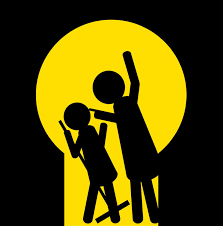- About
- Topics
- Picks
- Audio
- Story
- In-Depth
- Opinion
- News
- Donate
-
Signup for our newsletterOur Editors' Best Picks.Send
Read, Debate: Engage.
| September 19, 2017 | |
|---|---|
| topic: | Slavery |
| tags: | #UK, #slavery, #forced labour |
| located: | United Kingdom |
| by: | Federica Tedeschi |
What does modern slavery exactly mean, though?
The umbrella term comprises the great devils of our day, like human trafficking, slavery, servitude and forced or compulsory labour.
These slaves, who in most cases have left their home after the promise of a better life in Europe and embarked on some unpleasant journey worth tens of thousands of pounds, are not necessarily only found in brothels. In fact, they can be working in local car washes, nail bars or restaurants, where escape does not seem to be an option; exploitation and abuse through threats, punishment, violence and coercion is the norm instead. And despite the long working shifts for little or no reward, it is unlikely these people will ever be able to repay the initial travel debt: one more reason to be kept captive in sub-human conditions.
Great Britain and particularly London, has become a global hub for modern slavery, according to the first independent Anti-Slavery Commissioner Kevin Hyland, whose role was created by the Modern Slavery Act 2015 to promote best practice and drive crucial improvement across the anti-slavery response, both in the UK and internationally.
“What we must remember is this is mainly women and children, across the United Kingdom who have been bought and sold and traded on a daily basis and I don't think there is a single person in the country who would find that acceptable. Therefore, the identification, rescue and support of those victims is crucial and if it is done properly, we will encourage more victims to come forward. There is a National Referral Mechanism (NRM) which is available to victims”, declared Mr. Hyland.
The NRM is in fact the process through which the Modern Slavery Human Trafficking Unit (MSHTU) collects data about victims to quantify the extent of the issue in the UK. They have already identified over 2,300 potential slaves during the first half of the year, originating from 83 different nationalities, being Albanian, British and Vietnamese the most commonly reported ones.
Interesting how the most frequent exploitation type recorded for adult victims was sexual abuse, closely followed by labour exploitation, which was, in turn, the most prominent exploitation type registered for underage victims so far in 2017 and for all age groups in 2016.
As much as it is surprising that the third largest group assessed last year was British, locating and identifying potential victims of modern slavery is only the first step of the rescue operation process. It is in fact mandatory to ensure they receive appropriate support afterwards.
According to Kevin Hyland, the National Crime Agency (NCA) the NRM belongs to, has ignored relevant information about offences in the past and therefore many criminals have escaped prosecution:
“If we deal with the victims properly and they are properly debriefed, they know more than anyone else about the exploiters, the routes, the methods used. We need the NRM to be something that looks through the whole life cycle of the victim, we need it to be able to focus and stay with that person until they have enough time to rebuild their lives”.
It is also determining to look at what else is available around the abilities of victims to access healthcare, psychological help, education, and importantly employment.
“We need to make sure that those services are available because at the current time victims are leaving the NRM and becoming destitute and returning to either exploitation or becoming homeless just because there are no other options for them” highlighted the Anti-Slavery Commissioner.
The risk for modern slaves to be trapped in the lowest-paid employment and forced labour situations sounds almost as bad as going unnoticed in the first place. Hence police departments should team up to tackle the issue and force corrupt businesses to close down.
The Evening Standard has answered the problem by launching an online tool that offers advice on spotting the signs of modern slavery and helping the victims. The newspaper’s platform also contains instructions for the readers to both uncover products made using slave labour and demand that firms issue details of their supply chains.
By copying the embed code below, you agree to adhere to our republishing guidelines.
